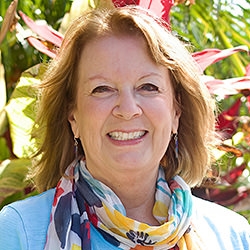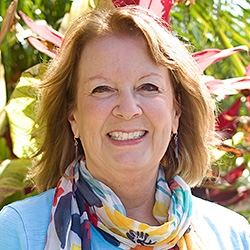

Search Results: change
-
Create and sustain a collaborative culture by learning which systems shape organizations.
-
We can see throughout many examples in history that when we look for "who" is at fault, and thereby seek social change through shaming that person (or that group), it tends to lead to disastrous long term consequences. Even if it works in the short term. Instead, if we want to end cycles of violence we can seek to understand systemic causes and context of individuals' behaviour. And from there, look for solutions that stem from this understanding.
-
While so many of us know how close we are to the edge of global catastrophe and want change, what makes the existing global system continue to function with our ongoing participation? Read on for more on the challenges and path towards learning to steward life and all the resources of this one planet for the benefit of all.
-
Within the pandemic, limitations of our market economies are more visible. Extreme need is exposed when the economy is collapsing and so many people are without jobs. We can now see how it’s possible to direct resources where they are most needed, solely out of care and interconnection. This is a call to explore a more viable way of living, that centers relationship over transaction.
-
With more and more news coverage on the increase in climate events around the world, climate change is slowly becoming accepted as an emergency. But how do we stay sane amongst all the chaos and to go one step further how can we take action whilst being grounded and calm?
-
Most people want to punish perpetrators of sexual violence. Unfortunately, punishment doesn’t lead to lasting widespread change. Rather, we can identify root causes and conditions that sustain violence. That means shifting from individual to systemic lenses, and from punitive to restorative responses. It means collective learning about how such acts are nurtured and persist. This can reduce the chance of it happening again.
-
We only have this decade to make radical changes to avert crossing over into an unlivable Earth. What's essential is a critical mass of people with capacity to respond to many enormous, daunting social-environmental challenges. This means on a wider scale, responding to conflict, fear, hate, injustice and violence with the ability to see our commonality underlying our differences. And to feel part of a larger whole so we can birth natural caring, togetherness, and cooperation.
-
The “mind” or our “ego” are often depicted as a static entity, an unchangable part of human nature, and as obstacles or negative parts of ourselves to overcome. This view creates maligning, a split within us, while remaining invisibly part and parcel of authority-based societies --the dominant culture and institutions into which we are born. Instead, I want to advocate an integration of reason and emotion, mind and heart, plus self and others.
-
-
-
Miki speaks to peace activists about connecting with the life vision in those who stimulate pain.
-
October always makes me think about Marshall Rosenberg, the founder of Nonviolent Communication. He was born October 6, 1934. If he were still alive today (he died February 7, 2015), he would be 89 years old!
-
The awareness and practice of interdependence is integral to holding an NVC consciousness. Practicing interdependence also means bringing in a quality of care in the moments we want to change agreements with others. This article talks about where our various choices, in regards to changing agreements, fits into different levels of engaging our interdependence.
-
- Celebrate and nurture your relationship to the Earth — and each other!
- Explore your connections to family, partner, work, nature, self and more
- Discover new ways to grow in community and work together to make this world a better place
- Engage and immerse yourself in NVC while making new friends!
-
- Discover what is yours to do in response to our global crises
- Weave nonviolence more deeply into how you live and lead
- Receive ongoing support in how to be effective and alive while pursuing your highest goals
- Increase your capacity to face and mourn current reality as a source of greater choice and energy
- Be a part of transforming the legacy of scarcity, separation, and powerlessness into a livable future
-
Trainer Tip: Every time you criticize yourself, you cause yourself to feel shame and guilt, which promotes depression and stagnation. Instead, bringing in more self compassion can increase opportunities for change. Do this by acknowledging your needs (or values) that aren’t met by your actions. Read on for how to do this.
-
How can we hold love, understanding and compassion -- and still confront people about the harmful impact of their actions, hold them accountable, take action, speak truth and advocate for change... all in a manner fully aligned with our values and vision? Read on for how we can do accountability; what kind of action we take and with what motivation; and what our movements for change can look like from this lens.
-
In this insightful snippet from Sarah Peyton, discover how connecting requests can transform conversations into meaningful exchanges. Referred to as the "steering wheel" of NVC dialogue, connecting requests shift the focus from action to connection, creating clarity and understanding.
-
Join Eric, as he reveals a clear path from heartbreaking intimate relationships to joyful, thriving intimate relationships. Eric uses his passion for helping singles heal from their past relationships, to help you to experience more ease, joy and mutuality in future relationships.
-
When deciding if someone crossed your boundaries and how to respond, you may get conflicting opinions on it. These opinions can be coarse attempts to manage life with rules about what should(n’t) happen. Instead, so that you can find where you want to invest your energy, ask yourself questions that reveal what for you is truly in integrity, nourishing, connects to your heart, and deepens self understanding. Read on for examples.
Quick Links

Stay in Touch!
We value your privacy, won't share your email address and you can easily unsubscribe any time.













